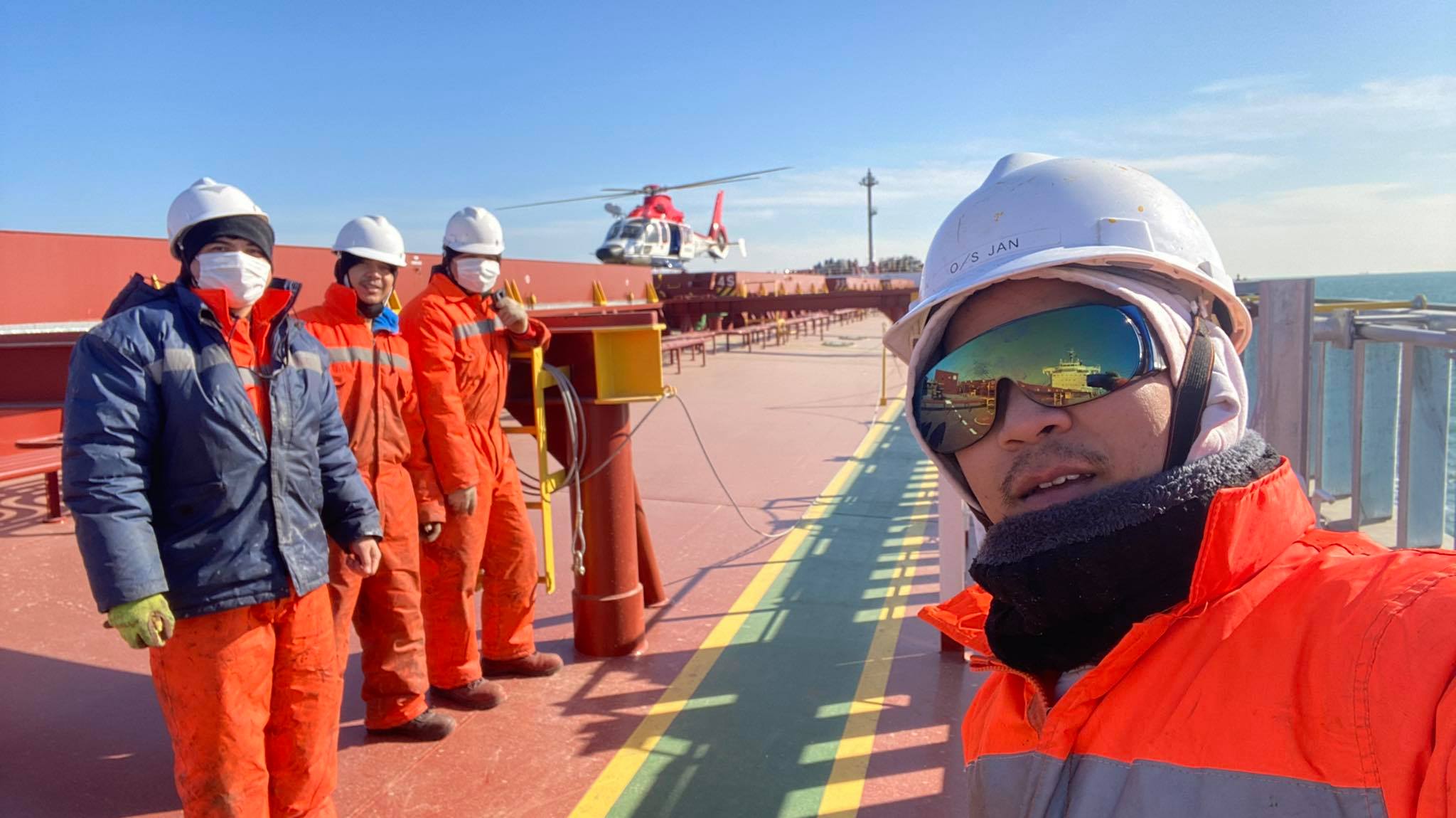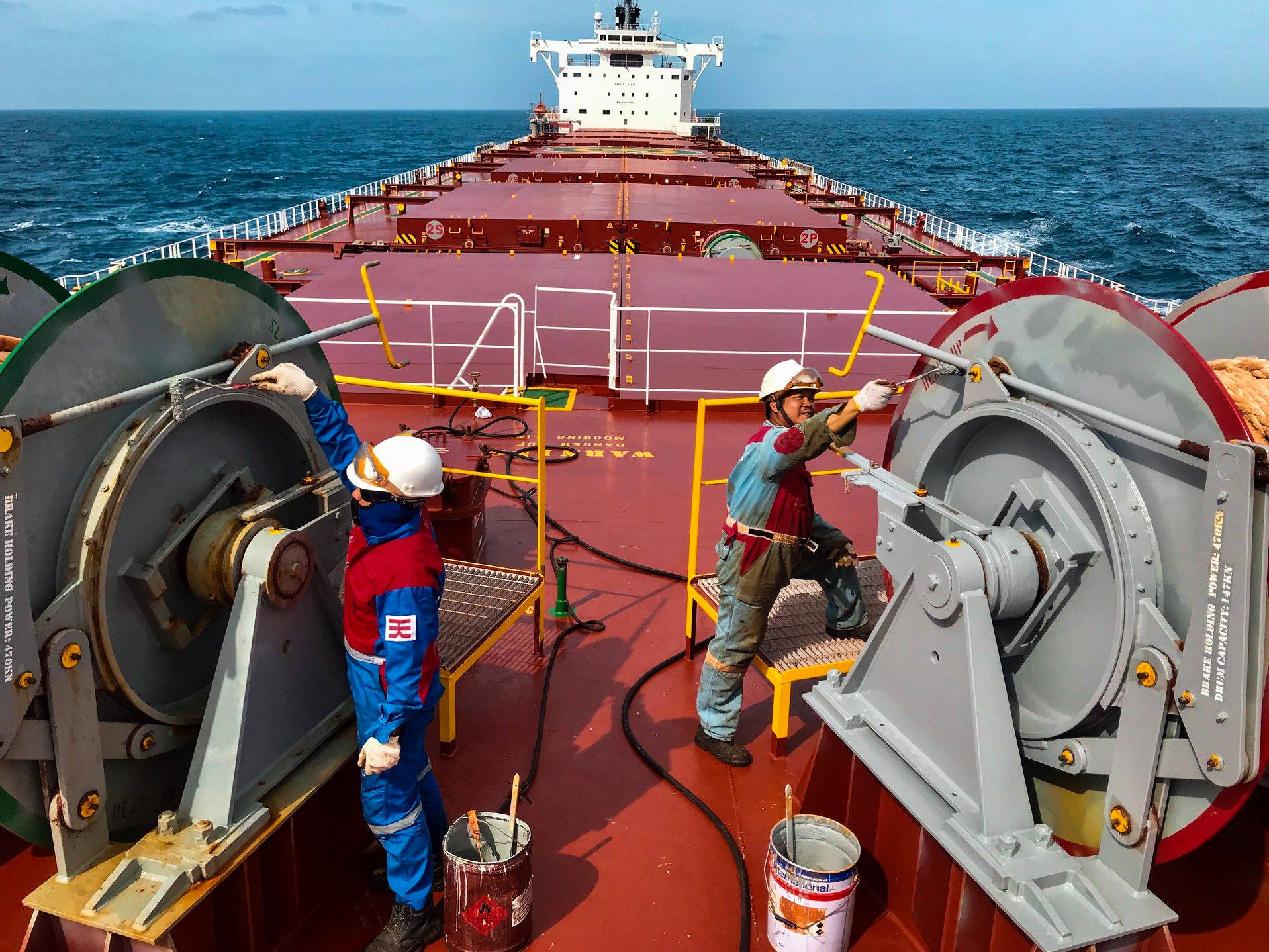The seafaring profession is inherently “picky” people, it is even more difficult to attract maritime human resources when the specific mechanism for this industry group is almost nonexistent.
Had to hire foreign crew at high price
Statistics from the Vietnam Maritime Administration show that by the end of 2019, the number of ships flying the Vietnamese flag was about 1,500. With more than 41,000 seafarers holding Certificates of Competency (GCCNCM) working on board ships, in theory, the number of officers and crew members still meets the needs of the domestic fleet (average 15 people). /ship) and the needs of foreign-flagged ships.
However, Mr. Vu Khang Cuong, Head of the Ship and Crew Registration Department (Vietnam Maritime Administration) said that it is increasingly difficult for ship owners to recruit crew members, especially those with high skills. Some ship owners have to use foreign crew members, including low-ranking titles such as OS (internship), AB (experienced) to maintain the operation of the fleet.

According to Mr. Nguyen Que Duong, Head of Crew and Ship Management Department (VN Maritime Corporation – Vinalines), Vietnam’s crew is currently in serious shortage. “If decades ago, shipping companies like Vosco, Vinaship… were the “dreamland” of many young people wishing to change their lives, now, Vinalines’ crew members are mainly old people. Even recently, a number of recruitment agencies in the positions of mechanics and service crew could not find candidates, “said Mr. Duong. .
A representative of Tan Dai Duong Shipping Investment Joint Stock Company said that currently, the market for “hired” seafarers for foreign ships is quite active. Some European ships are paying quite attractive salaries with the title of 2nd Deputy is 2,200 USD/month, 3rd Deputy is 2,000 USD/month. “For AB-level sailors, most ship owners are paying from 800-900 USD/person/month. Some Vietnamese ship owners also raised the salary for AB sailors from 10-12 million/month to 12-14 million. /month. However, Vietnam’s AB-level sailors are very lacking,” he said.
According to Mr. Vu Khang Cuong, crew members are “indifferent” to the current profession due to many reasons. In which, workers, especially young people, have many job options with better income than seafaring – a profession that is often away from home and has to cope with waves and winds.
“The negative feedback about the status of salary debt, “running out” of wages along with the fragmented and unprofessional management methods of some ship owners also makes workers depressed and dissatisfied. Currently, the State’s policy has almost no special incentives to motivate workers,” said Mr. Cuong.
Crew members will enjoy special benefits in terms of salary and bonus
Mr. Vu Khang Cuong said that recently, the President signed an Order to promulgate the Labor Code (amended) passed by the XIV National Assembly at its 8th Session. This is the first Code regulating employees. Working in the maritime sector is classified in the group of special occupations, and is entitled to a number of appropriate regimes in terms of training, labor contract, salary, and working hours. “This is an important premise for functional levels and businesses to research and propose appropriate policies to the Government to “revive” maritime human resources in general and seafarers in particular,” said Mr. Cuong.

According to Mr. Cuong, in the coming time, the Vietnam Maritime Administration will study and consult with authorities on the regulation of the minimum wage on the basis of reference to the minimum salary of seafarers of the ITF (International Transport Worker’s Federation). ). “However, the regulation of the minimum wage may greatly affect the operation of enterprises. Therefore, this issue will be carefully considered before proposing to the competent authorities,” Mr. Cuong said. good.
Meanwhile, Mr. Nguyen Que Duong said that if the maritime sector is classified as a specific industry, the relevant regimes also need to be considered and adjusted in the direction of priority. Typically, social insurance (social insurance) and medical insurance (health insurance) of seafarers. According to regulations, a seafarer’s time at sea in a year is only from 8-10 months, 2-4 months on ashore without salary, meaning no social insurance contributions. Due to the almost non-existent continuity in insurance contributions, very few seafarers are eligible for the insurance period to receive pensions (except for crew members on the payroll of large companies).
Compulsory health insurance is also costly for seafarers when most of the year, seafarers work at sea and do not use medical services onshore. The seafarers who reserve ashore are not supported by health insurance because they do not have a salary. “Functional levels should soon have a policy of taking 10 months of social insurance payment (with income) of seafarers equally divided among 12 months of the year and giving priority to seafarers who do not have to buy compulsory health insurance to avoid additional costs, encourage Seafarers are attached to the profession,” suggested Mr. Duong.
Source: Traffic Newspaper
